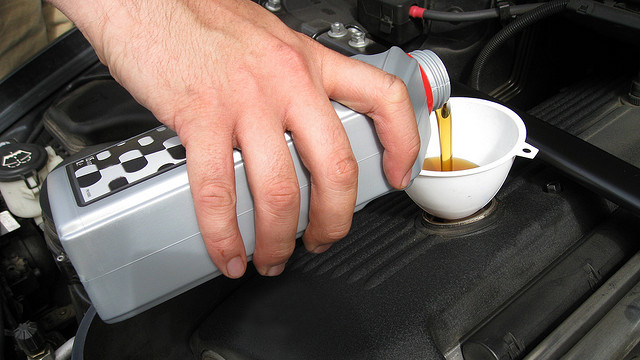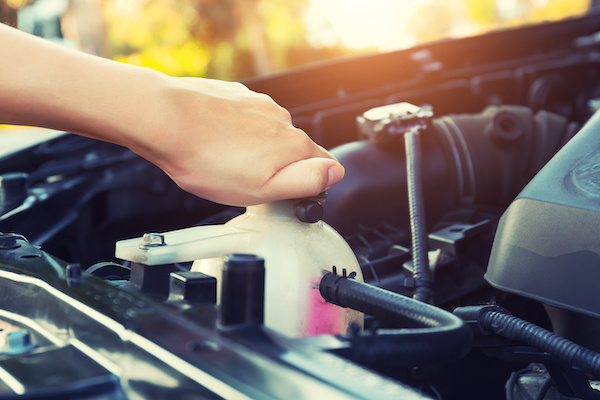Posted on 11/21/2024
.jpeg)
Finding the Right Auto Repair Shop Near You: Building Trust and Getting Quality Service When it comes to finding an auto repair shop or mechanic “near me,” it’s about more than just location. Sure, proximity matters, but if you’re looking to save money, maintain your car’s performance, and ensure safety, you need to build a relationship with a trusted auto repair shop or technician. Simply picking the closest mechanic isn’t enough if you want the job done right and at a fair price. Establishing a strong connection with an experienced automotive professional can make all the difference in your car ownership experience, especially for the long haul. In this guide, we’ll discuss what to look for when searching for a “mechanic near me,” how to identify a quality shop, and why trusting your technician is crucial. Why Finding the Right Technician is Key In the automotive industry, professionals are often called “technicians,&rdq ... read more
Posted on 11/18/2024
.jpeg)
Is Having a Maintenance Schedule Important for My Car? Understanding the Dealership vs. Aftermarket Debate When it comes to maintaining your vehicle, the seemingly simple task of following a service schedule can feel confusing. Should you rely on the factory-recommended maintenance intervals, follow your dealership’s advice, or listen to your trusted local mechanic or aftermarket specialist? Each has its own recommendations, but at the end of the day, proper maintenance is essential if you want your car to last and perform optimally. Let’s break down the details and discuss how a well-thought-out maintenance schedule can keep your car on the road for hundreds of thousands of miles. Why Regular Maintenance is Essential First things first: why does your car need regular maintenance? Many parts in a vehicle experience wear and tear simply from everyday use. Fluids degrade, filters get clogged, and moving parts wear down. Following a consistent maintenance schedule helps add ... read more
Posted on 11/14/2024

Why Shocks and Struts Are Essential for Your Vehicle and When to Replace Them Shocks and struts are often taken for granted, but they play a critical role in the comfort, handling, and safety of your vehicle. Understanding their function and importance, along with knowing the right time for replacement, is crucial for every car owner. Here, we’ll cover what shocks and struts do, why they’re necessary, and why it’s often recommended to replace them around 75,000 miles as a part of preventive maintenance. What Are Shocks and Struts? Shocks and struts are key components of your vehicle’s suspension system, working to ensure stability, comfort, and control on the road. 1. Shocks (Shock Absorbers): Shock absorbers are hydraulic devices designed to control the movement of your vehicle’s springs, especially when driving on uneven or rough terrain. The springs absorb most of the initial impact, and shocks help manage this energy by controlling t ... read more
Posted on 11/11/2024
.jpeg)
Check Engine Light Diagnostics Near Me: The Real Story Behind Check Engine Light Diagnostics: Why It’s More Than Just Reading a Code You’re driving along, and suddenly, the dreaded check engine light pops up on your dashboard. It's that sinking feeling we all know, but what does it really mean? Some places offer a quick code reading for free, but what they’re giving you is only a surface-level answer. The code alone is like a single sentence in a novel—one small piece of a much larger, complex story about your car’s health. In modern vehicles, the check engine light is a signal that something is off within a complex network of systems powered by 20, 30, or even 40 onboard computers. Each of these computers, or control modules, is designed to handle specific parts of your vehicle’s performance, safety, or efficiency. These modules are linked together through tens of thousands of wires and sensors, all of which communicate in real t ... read more
Posted on 11/7/2024
.jpeg)
Brake Repair Shops Near Me: A Detailed Guide When it comes to vehicle safety, few aspects are as essential as your brakes. Whether you’re navigating city traffic or taking a road trip, your brakes are the primary component ensuring you and others remain safe on the road. Regular brake maintenance and timely repairs can make all the difference. If you’re specifically looking to support local, independent brake repair shops, this guide will help you find a reliable, skilled, and customer-focused shop nearby. Why Routine Brake Maintenance Matters Brake components wear down over time, leading to issues that can affect the performance and safety of your vehicle. Signs that you need a brake inspection include squealing or grinding sounds, reduced responsiveness, vibrations when braking, or an illuminated brake warning light. Ignoring these signs can compromise safety and lead to costly repairs. Local repair shops can often provide a more personalized service, ensuring these sm ... read more
Posted on 11/4/2024

How Often Should I Perform an Oil Change? A Deep Dive into the 3,000 to 5,000-Mile Interval Debate When it comes to car maintenance, few topics spark as much debate as the question of oil changes. If you’ve been a car owner for a while, you've likely heard the traditional advice: change your oil every 3,000 to 5,000 miles. However, recent advancements in engine and oil technology have led many manufacturers to stretch these intervals, with some recommending changes as infrequently as every 7,500 to 10,000 miles—or even longer. So, should you follow the classic 3,000- to 5,000-mile rule, or trust the manufacturer’s extended intervals? In this blog, we’ll unpack the reasoning behind the 3,000 to 5,000-mile recommendation, discuss why some experts prefer sticking to it over following manufacturer guidelines, and examine the potential benefits of sticking with this more frequent interval. The Origins of the 3,000 to 5,000-Mile Rule Historicall ... read more
Posted on 10/31/2024

The Truth About Car Repair: What You Need to Know Car ownership comes with a significant question: who should you trust when it comes to maintaining your vehicle? With manufacturers, dealerships, and independent repair shops each offering different advice, it can feel overwhelming to know what’s best for your car in the long run. The truth is, car manufacturers and their vast network of influence don’t always have your best interest at heart—they want to sell more cars. As a result, the recommendations from automakers may seem to prioritize minimizing maintenance and keeping repair costs low initially. But the reality is that neglecting preventative maintenance will cost you more over time. This blog will help you see through the conflicting messages, giving you a deeper understanding of why proper maintenance is crucial and how to find a reliable service provider. Automakers Want You to Buy, Not Maintain At the heart of the automotive industry lies ... read more
Posted on 10/28/2024

Should You Buy a New or Used Car, or Keep Your Old One? In the United States, one of the most significant drains on personal wealth is the car sitting in your driveway. It’s not just the immediate cost of a vehicle—financing, depreciation, maintenance, and insurance all add up to enormous lifetime expenses. Yet, many of us continue to trade up to new cars, trying to keep up with societal expectations and indulging in the allure of that "new car smell." This blog dives deep into the true costs of new cars, used cars, and maintaining your current vehicle. By the end, you'll have a clear picture of how each choice impacts your wallet, lifestyle, and long-term financial well-being—and why cars are often the main culprit sabotaging retirement savings. The True Cost of Vehicle Ownership: Breaking it Down When considering whether to buy a new, used, or keep your old car, it’s essential to understand the "true cost to own" (TCO ... read more
Posted on 10/24/2024

Why Is My Car Overheating? Causes, Solutions, and Prevention Overheating is a common issue that drivers dread, as it can leave you stranded on the side of the road and lead to costly repairs if not addressed promptly. When your car’s engine runs too hot, it can suffer from serious damage, including blown head gaskets or cracked engine blocks. In this post, we’ll explore the main causes of overheating, how to troubleshoot them, and tips to prevent overheating from happening in the future. How Does a Car Cooling System Work? Understanding why a car overheats requires knowing how the cooling system functions. Your car’s engine generates an immense amount of heat during combustion. The cooling system works to remove that heat to prevent damage. It does this through several interconnected components: Radiator: Transfers heat from the coolant to the outside air. Coolant (antifreeze): Absorbs heat from the engine and circulates through the radiator. Wat ... read more
Posted on 10/21/2024

The Role of an Auto Mechanic: A Deep Dive into Car Maintenance and Repair Introduction: The Lifeline of Automotive Health In today’s fast-paced world, automobiles have become essential for mobility, convenience, and livelihood. At the heart of every well-functioning vehicle is the expertise of an auto mechanic, the unsung hero who ensures our cars are safe, reliable, and running at peak performance. Whether it’s a simple oil change, a complex engine rebuild, or diagnostics on modern vehicles, auto mechanics play a crucial role in keeping vehicles on the road. In this blog, we’ll explore the responsibilities, skills, and tools required by an auto mechanic, as well as delve into the importance of preventive maintenance, emerging challenges with electric vehicles (EVs), and tips for finding a trustworthy mechanic. Who Is an Auto Mechanic? An auto mechanic (also called a car mechanic) is a trained professional who inspects, diagnoses, repairs, and main ... read more